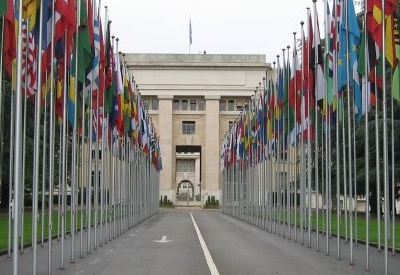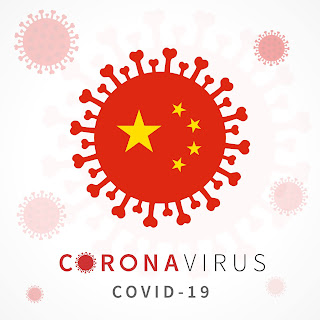U.S. Defense Secretary Mark Esper releases an OP - ED on China to the Wall Street Journal
U.S. Defenbse Secretary, Mark Esper has been hearing whispers about his impending ouster should Donald Trump be successful this November in his re-election bid. Esper has continued a policy of Chinese condemnation regarding the coronavirus, human rights allegations, and China's maritime claims in the South China Sea. This tact follows Secretary of State, Mike Pompeo openly and rightfully criticizing China in July for treating that region like their "maritime empire." Esper has offered to visit the mainland this year as a show of goodwill in stemming, what appears to be a march towards military conflict between Beijing and Washington. However, the level of military exercises in the SCS between the two powers looks to be spiralling towards a minor skirmish or protracted conflict judging by the central government's recent activities, including firing two DF- 26 "aircraft carrier killer" missiles to send Washington a direct message amidst their anger over the U.S. sending a B2 surveillance plane into a no-fly zone that they set out for ,military activities. Of course, the U.S. rightfully claimed these activities are being held in international waters where the U.S. or any other state actor can fly or sail according to international law. Ultimately. the General Secretary of the Chinese Communist Party, Xi Jinping, has colonial aspirations for China and a dogged determination too turn China's back on a pock marked history that includes, British, Japanese, and American influence restricting China's rise as a global power. If successful, Xi will no doubt find a place inside Tiananmen Square alongside the founder of communist China, Mao Zedong. If not, he will see his unlimited term status rejected by the mandarins inside the CCP.
Here is the text of Secretary Esper's Wall Street Journal piece published on August 24, 2020.
The Pentagon is Prepared for China
China’s People’s Liberation Army celebrated its 93rd anniversary Aug. 1 with a speech by Chinese Communist Party General Secretary Xi Jinping. Once again, Mr. Xi called for transforming the PLA into a world-class military, one that can further the party’s agenda far beyond China’s shores. His remarks serve as a stark reminder that we have entered a new era of global competition between the free and open international order and an authoritarian system fostered by Beijing.
The PLA is not a military that serves the nation, let alone a constitution, as the U.S. armed forces do. The PLA belongs to—and serves—a political entity, the Chinese Communist Party. A more capable PLA is a military more able to advance the party’s domestic vision, the one-sided international system Beijing desires, and an economic and foreign-policy agenda that is often inimical to the interests of the U.S. and our allies. As a consequence, all nations that seek the prosperity and security of a free and open order must carefully consider the implications of PLA requests for access, training and technology.
Editorial page editor Paul Gigot will interview Jared Kushner, Senior Adviser to President Donald Trump, on the presidential campaign and what to expect if Mr. Trump wins the election. BEGINS 12:30 PM EDT AUGUST 26, 2020.
PLA modernization is a trend the world must study and prepare for—much like the U.S. and the West studied and addressed the Soviet armed forces in the 20th century. The PLA openly declared its intentions to complete military modernization by 2035 and become a world-class force by 2049. Its comprehensive modernization plan includes a powerful arsenal of conventional missiles alongside a suite of advanced cyber, space and electronic warfare capabilities. It also includes the deployment of artificial intelligence to strengthen its authoritarian grip and continue its systematic repression of its own people, especially its Uighur population.
The Communist Party’s emphasis on indoctrinating, modernizing and tightening control over the PLA shows how China’s leaders view the military as central to achieving their objectives. Prominent among these is to reshape the international order in ways that undermine globally accepted rules while normalizing authoritarianism, creating conditions to allow the Chinese Communist Party to coerce other countries and impede their sovereignty.
These actions from China have spurred the U.S. Department of Defense to mount a comprehensive response, and to accelerate our implementation of the National Defense Strategy. The NDS guides our efforts to adapt and modernize America’s armed forces for great-power competition, with China being our principal focus.
First and foremost, long-term competition with China demands that we have a force that is able to compete, deter and win across all domains: air, land, sea, space and cyberspace. To support this effort, the Pentagon is investing in both advanced conventional capabilities and game-changing technologies such as hypersonic weapons, 5G communications, integrated air and missile defense, and artificial intelligence—all of which will be critical to maintaining our advantage for decades to come.
Second, expanding and strengthening our network of allies and partners is also vital to this effort, as this provides an asymmetric advantage that our competitors cannot match. While the PLA continues its aggressive behavior toward its neighbors in the region, such as sinking a Vietnamese fishing vessel, harassing Malaysian oil and gas development, and asserting unlawful maritime claims, American forces continue to strengthen our longstanding partnerships and defend the rights of all countries.
During consultations with my Australian counterpart last month, for example, we signed a statement of principles committing to enhance our defense cooperation and posture in the Indo-Pacific region for the next decade and beyond. Also in July, the U.S., Australia and Japan held our latest defense meeting to promote greater information-sharing and enhance interoperability, as demonstrated by our recent trilateral naval exercise in the Philippine Sea.
Third, because creating broader networks of capable, like-minded partners is core to our strategy to disrupt the Chinese Communist Party’s malign influence, the Pentagon continues to build the capacity of our partners globally. This occurs through programs such as the Maritime Security Initiative, where we have provided approximately $394 million of assistance to bolster the maritime capabilities of allies and partners across the Indo-Pacific region. Actions such as these reduce these nations’ vulnerability to Chinese coercion, and help us expand joint training, exercises, operations and planning efforts.
These initiatives reflect America’s steadfast commitment to stand with our allies and partners against Beijing’s bullying, support the sovereignty of all nations, and defend the free and open international system that has fostered decades of stability and prosperity for billions. Yet the U.S. can’t shoulder this burden alone, and we continue to urge our allies to share it with us fairly and equitably as true partners. We also encourage like-minded nations to show solidarity and be more deliberate in aligning their policies on China in defense of our shared goals and interests. The recent decisions by New Zealand and the U.K. to ban Huawei from their 5G networks are prime examples.
Unlike Communist China, the U.S. stands for a free and open global system, where all nations can prosper in accordance with shared values and longstanding rules and norms. And unlike the armed forces of the U.S. and our allies, the PLA is a loyal tool of the Communist Party. As such, I urge all countries to examine—and consider curtailing—their relationships with the PLA to make sure they are not helping advance the Communist Party’s malign agenda toward our collective detriment.
This week I will travel to Hawaii, Palau and Guam to meet both in person and virtually with my counterparts and other senior leaders from across the region to convey the importance of these efforts and our commitment to a free and open Indo-Pacific. Nations valuing freedom, human rights and the rule of law must stand together to counter the coercive role of the PLA in the Chinese Communist Party’s aggressive attempts to undermine the sovereignty of nations.
Mr. Esper is U.S. defense secretary





